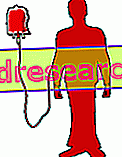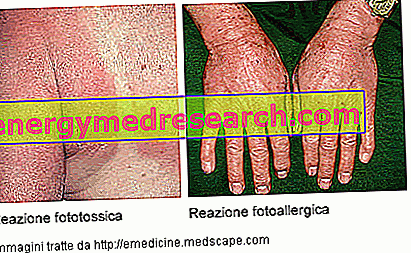Related articles: Vascular dementia
Definition
Vascular dementia is a form of deterioration of intellectual capacity, caused by an alteration of cerebral blood circulation (diffuse or focal). This alteration causes a degeneration of the nerve cells present in the affected brain area, and may depend on small ischemic heart attacks, cerebral haemorrhages or atherosclerosis.
The neuronal or axonal loss is such as to determine an impairment of cognitive functions.
Vascular dementia is the second most frequent cause of dementia in the elderly population. Generally, men tend to be affected more often than women, especially after the age of 70.
Vascular risk factors, such as the presence of diabetes, hypertension, high blood cholesterol levels, previous heart diseases (in particular, myocardial infarction and atrial fibrillation) and smoking habits, contribute to the onset of disorder.
Most common symptoms and signs *
- abulia
- Aphasia
- Aggression
- Agnosia
- Hallucinations
- anhedonia
- Anorexia
- Apathy
- Apraxia
- Ataxia
- Cachexia
- Coma
- Confabulation
- Delirium
- Depression
- Learning difficulties
- Difficulty concentrating
- Language difficulties
- Dysarthria
- Dysphagia
- Bladder dysfunction
- Temporal and spatial disorientation
- Mood disorders
- ecolalia
- Hemiplegia
- Fecal incontinence
- Starvation
- Insomnia
- undernourishment
- Social isolation
- Lethargy
- marasma
- Memory loss
- Loss of coordination of movements
- Loss of balance
- Weight loss
- Loss of memories
- Confusional state
Further indications
The symptomatology is similar to that of other forms of dementia; however, ischemic damage from repeated micro-strokes or diffuse atherosclerosis may correlate with a decline in the discontinuous or slower and progressive cognitive state (note: a modest recovery may follow at each episode).
The symptoms depend on the specific area of the brain affected by vascular compromise and may include cognitive / behavioral manifestations and motor disorders of various nature and severity.
At the onset, cognitive impairment manifests itself with concentration difficulties and easy distractibility, mental confusion and short-term memory loss; learning and the ability to acquire new information become difficult tasks. Language problems develop (especially in the search for words), mood instability and personality changes. Functional autonomy can be limited by agnosia (reduced ability to identify objects) and apraxia (less ability to perform previously learned motor tasks), despite the integrity of sensory and motor functions. Subjects can become anxious, short-tempered, hostile and physically aggressive, or they can become more passive, with depression or general abandonment of social relations.
As vascular dementia progresses, motor disorders and other focal neurological deficits often develop, such as gait abnormalities, limb weakness, hemiplegia, increased need to urinate or problems controlling the stimulus.
Patients lose the sense of time and space; in addition, the risk of falls or accidents resulting from a confused state increases. Sensory or perceptual alterations can culminate in psychosis with hallucinations and paranoid delusions. Sleep is often disorganized.
In late stages, patients with vascular dementia are at risk of malnutrition, pneumonia (especially due to aspiration) and pressure ulcers, as they cannot walk, eat or perform any other activity of daily life. In the terminal phase, coma and death occur, generally as complications of serious infections.
The diagnosis is similar to that of other dementias and includes a series of clinical and instrumental tests, such as blood and cerebrospinal fluid analysis, and neuroradiological examinations with magnetic resonance or computed tomography.
Currently, there are no specific treatments available to combat vascular dementia after it has established itself. However, the progression of the disease can be slowed down by the control of blood pressure, cholesterol-lowering therapy, regulation of blood glucose and smoking cessation. Furthermore, adjuvant therapies for depression and sleep disorders can be helpful.



